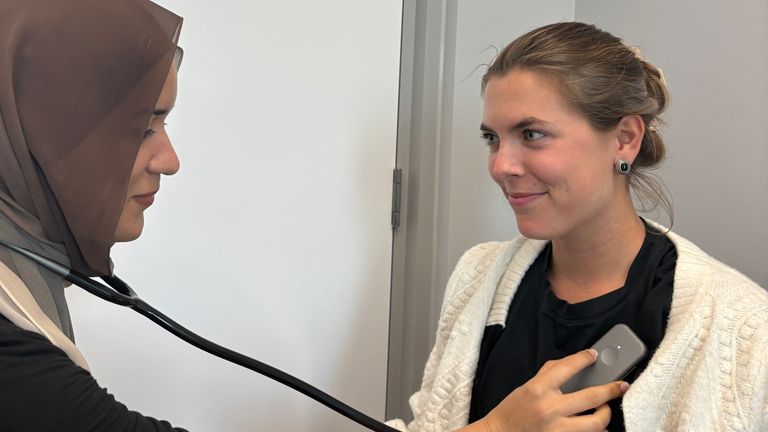
The humble stethoscope, unchanged for over 200 years, has received a major upgrade. AI enabled stethoscopes now being trialed in more than 200 GP surgeries across London can identify heart conditions in as little as 15 seconds. This development in AI stethoscope heart disease detection could bring rapid, non invasive heart disease detection AI into routine primary care.
Traditional stethoscopes rely on a clinician s ability to hear subtle heart sounds such as murmurs and irregular rhythms. Early stage conditions often produce sounds that are difficult to detect in a busy clinic appointment. As a result many cases of heart failure and atrial fibrillation are diagnosed late.
Early heart failure detection AI and rapid identification of atrial fibrillation can lead to earlier treatment such as anticoagulation which lowers stroke risk. For patients this means potentially life saving early diagnosis during standard checkups. For healthcare systems earlier intervention often costs far less than emergency care and may reduce hospital admissions for heart related emergencies.
AI enabled stethoscopes use machine learning models trained on thousands of heart sound recordings to identify patterns that human ears might miss. By combining audio analysis with clinical context the technology provides a rapid indication of conditions and supports clinicians in making timely referrals and treatment decisions.
While the initial results are promising the technology requires careful validation across diverse populations to ensure fairness and accuracy. Key issues that must be addressed include regulatory approval, clinician training so providers can interpret AI stethoscope clinical trial results, seamless integration with electronic health records, and robust data privacy protections to keep patient information secure. Managing false positives is also important to avoid unnecessary anxiety and unneeded referrals.
AI stethoscopes represent a practical example of how artificial intelligence can enhance primary care rather than replace clinicians. If validated at scale this approach to detecting heart conditions in seconds could transform preventive medicine and make routine heart screening more effective. The core question now is whether health services worldwide will adopt this technology and build the training, governance and infrastructure needed to use AI safely and equitably.
As patients and providers ask questions like "Can an AI stethoscope detect heart failure early" and "How does an AI stethoscope compare with an ECG" the evidence from large real world trials will be essential to guide adoption. For now the stethoscope s 21st century upgrade offers clear promise for faster, more accurate heart disease diagnosis at the point of care.



